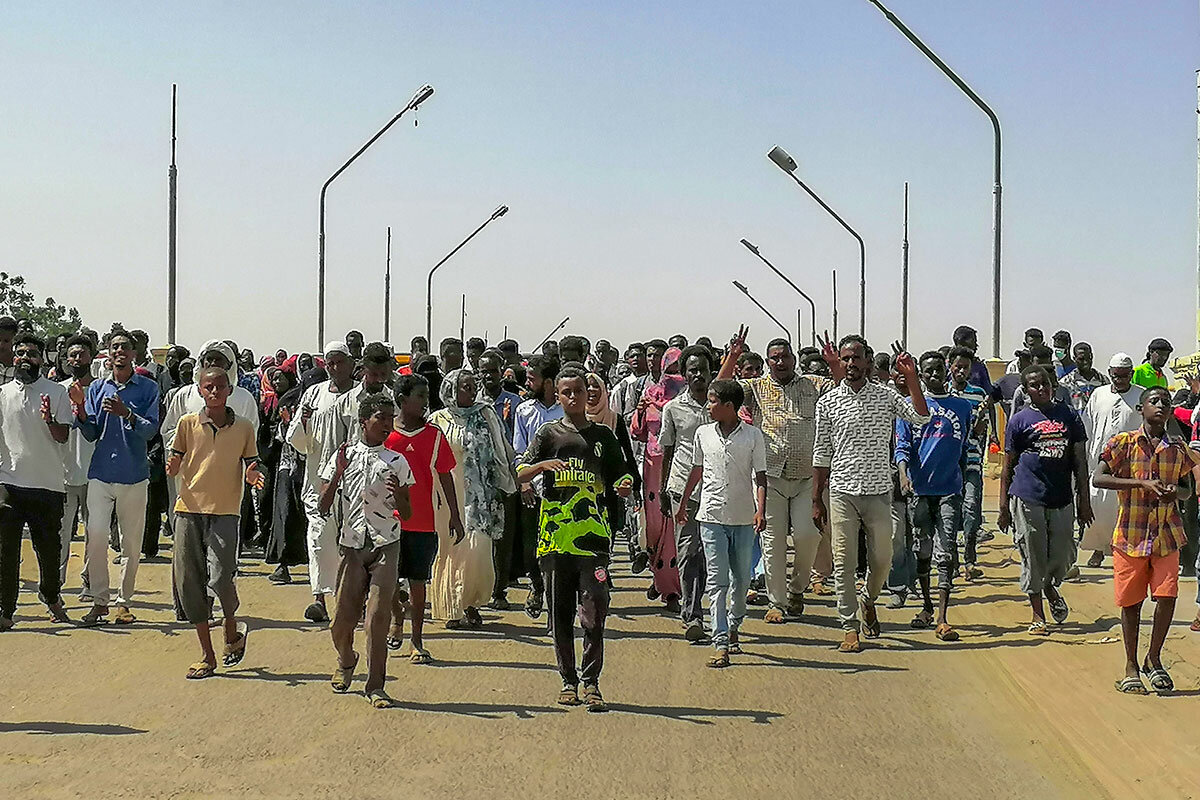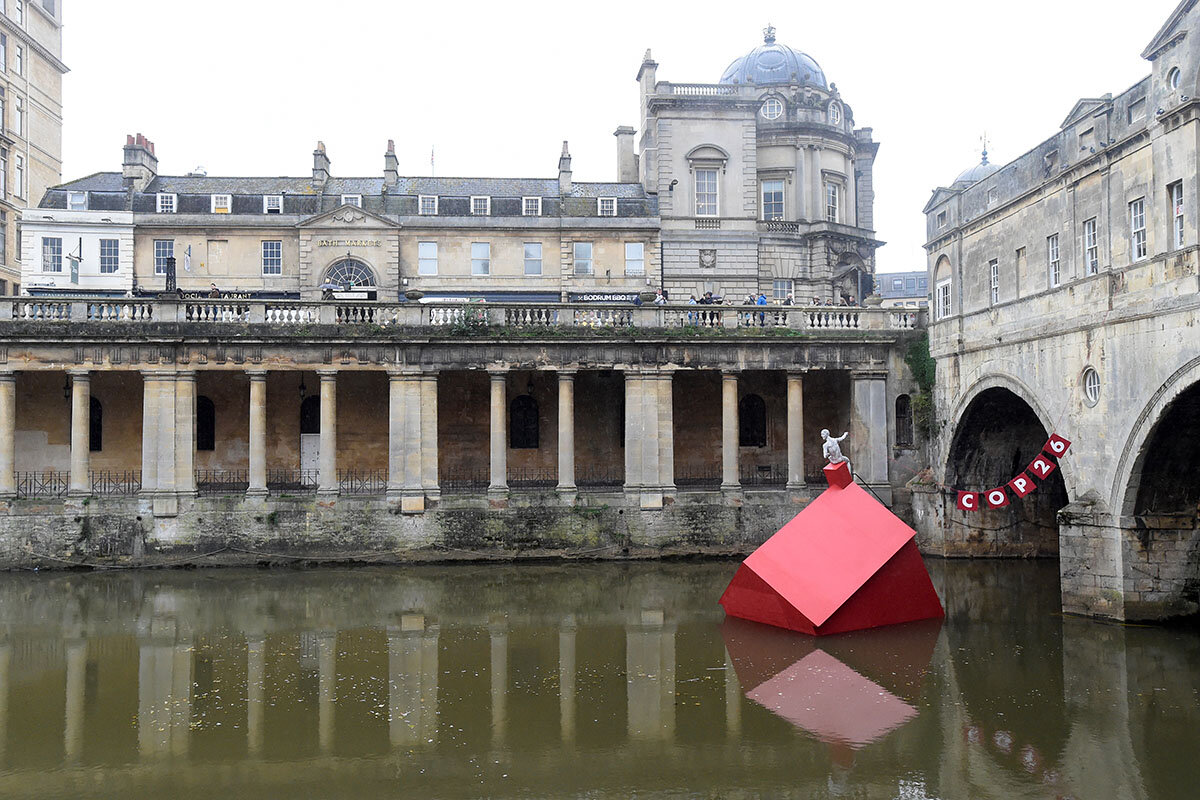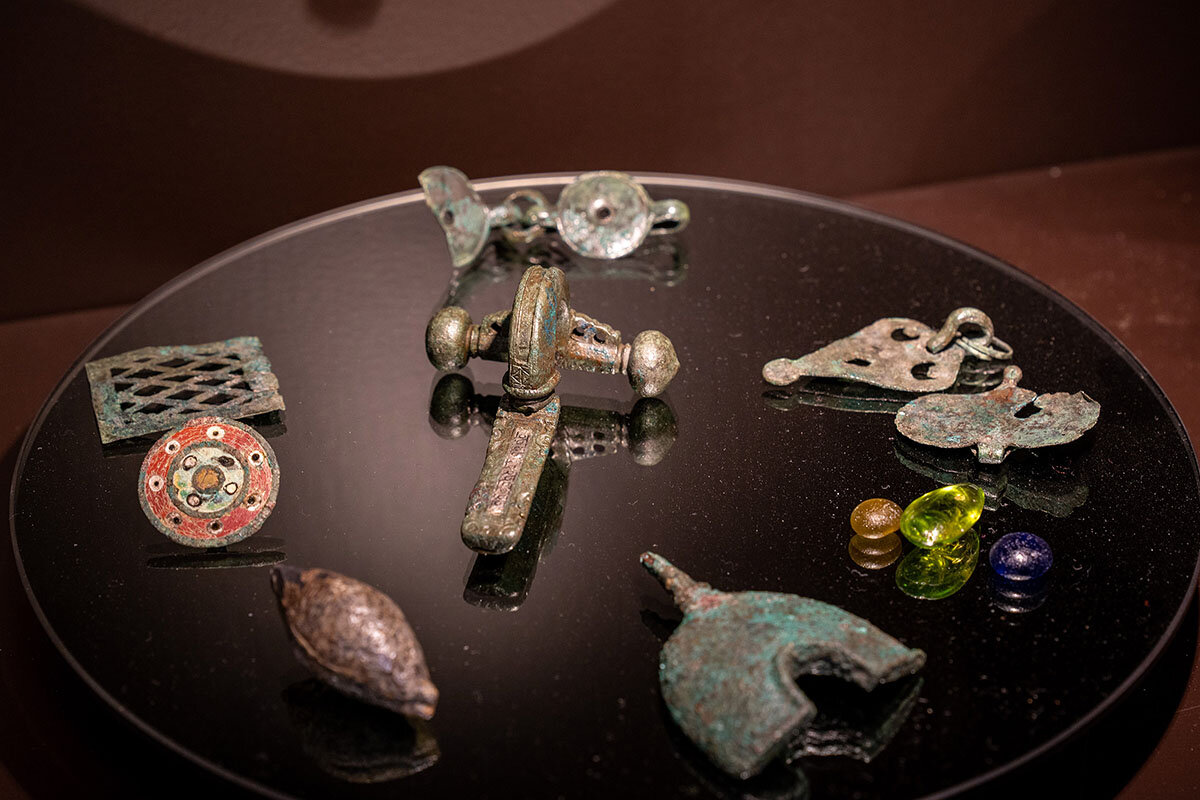Can the Biden administration exercise restraint in pursuit of democracy abroad? That is a question raised anew by the coup in Sudan, where the U.S. has invested time, money, and effort.
Monitor Daily Podcast
- Follow us:
- Apple Podcasts
- Spotify
- RSS Feed
- Download
 Laurent Belsie
Laurent Belsie
The numbers aren’t pretty. The economy slowed unexpectedly this summer, notching the weakest rate of growth since this recovery began. Inflation is up; job formation has slowed. In September, employers added only 194,000 jobs, the worst showing this year. Supply chain woes have cut into revenues, glaringly so for car manufacturers.
But that’s just the pessimistic view. “If you look at the glass-half-full view of this labor market recovery ... we’ve actually made a lot of progress,” says Gregory Daco, chief U.S. economist for Oxford Economics in New York, speaking at a webinar sponsored by the National Association for Business Economics. Compared with other recent recessions, “the recovery so far has actually been quite rapid.”
Economic growth is expected to rebound this fall, as pandemic caseloads fall. So is employment. Fewer people filed for first-time unemployment benefits last week than at any time since the United States was hit by the pandemic. Productivity growth is running above long-term trends. A big question is when inflation will recede.
To gauge a local economy, I’m a great believer in going beyond the numbers and looking around. Here in Boston, companies are so desperate for workers they’re raising wages or offering signing bonuses. Retail parking lots are full as consumers go shopping. Store shelves are emptier than I’ve ever seen, no doubt due to those supply chain problems but also perhaps a testament to strong demand.
Service at restaurants has slowed, and I’m spending more time on hold because there are too few people to serve the food and staff the phones. If that’s what Americans in general are seeing, it’s hard to be too pessimistic about the future. When people feel safe to go to work again, they’ll fill those jobs, ease those supply chain bottlenecks, and rev up the nation’s economic engine back to some new normal.









